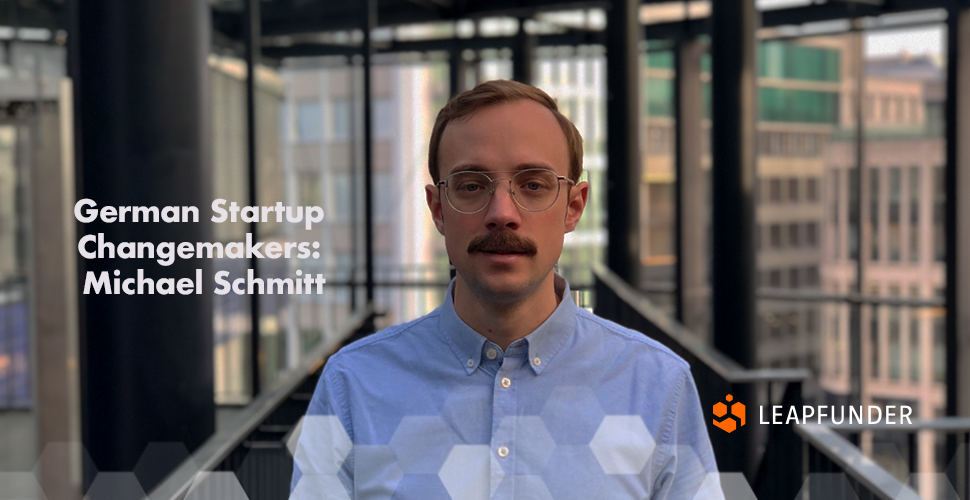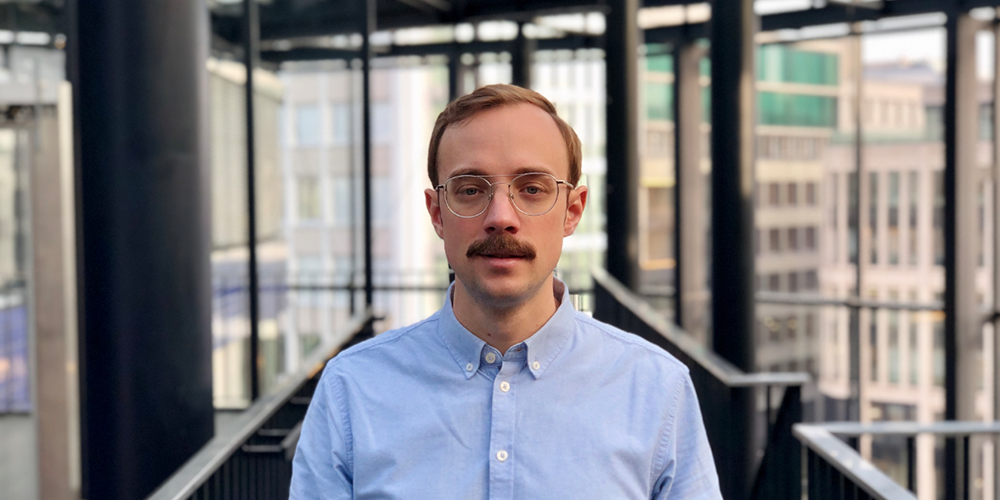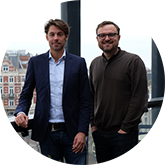We interviewed Michael Schmitt, the CEO of mii.ventures and founder of Gravitales GmbH. His mission is to provide new ways of creating value through marketing technologies and innovation practices. Find out how he entered the startup world, what it is about entrepreneurship that particularly attracts him, and what he predicts for the German startup ecosystem!

1. Hi Michael, thank you for agreeing to do the interview. Could you tell us a bit about your background and how you entered the startup world?
Thank you for the interview! I have an engineering degree and started my career as a manager for innovation projects. During this job, I was studying marketing and innovation. After two years, I quit my job and founded my first startup together with my friends. However, due to personal reasons, I left the company after a year. Afterwards, I worked as a digital consultant for small and medium-sized companies until I founded Gravitales GmbH in 2017. We specialize in the development of digital products for the marketing and media industry. With a great team, we support companies in implementing technology-driven creative solutions. Besides this, we also develop and market our brands, such as echogramm.de and storyliner.io.
2. You’re the CEO of mii.ventures, a technology incubator and investment company for new digital business. Tell us about your mission there!
mii.ventures is my vehicle for new innovation projects. During my time as a digital consultant, I used mii.ventures to handle my projects. Nowadays, the company serves as a holding company. The mission is to provide new ways of creating value through marketing technologies and innovation practices. We prefer validated learning over opinions and conventions. In doing so, we focus on flexible sprints and iterative testing instead of big budget-eating campaigns. Many small experiments create a better understanding of a target audience than a few great activities.
3. What is it about entrepreneurship that particularly attracts you? Tell us about storyliner.io, Gravitales GmbH’s creative platform for compelling content.
Working in the marketing and innovation industry for over eight years, I have seen many changes; evolved technologies, transformed business models, and strategies to cope with it. Entrepreneurship, for me, is a way to embrace and act on these changes.
For example, when it comes to content creation, nowadays, technology plays a significant role in it. Content creators use, on average more than five tools, and most of them adapt one content piece for two to five platforms. Non or semi-professional content creators, have to keep up with this increasing complexity. We offer a creative platform so that this target group can create content like a professional at a fraction of the costs. The development of a company that can significantly help such a vast market makes entrepreneurship challenging and attractive to me.
4. Could you share the top lessons for founders you learned over the years in the startup world?
This is a tricky question. As an entrepreneur in an early-stage startup, you take care of different areas of your business. There are quite a lot of learnings I made over the past years. You make progress, you fail, you stand up and reflect, and do this over and over again.
Attention vs. interest: when you put new technology in front of users and gather feedback, there is a fine line between awareness and real interest. Some users are interested in innovation and the technology itself, but they wouldn’t use the product later. Attention feels good, but only users with real interest are what keeps you going in the long run.
Put the problem first: as a creator, you quickly fall in love with your creation. But to develop meaningful products, you need to solve real user problems. Our first solution that allowed users to create compelling content was a chatbot assistant because we wanted to reduce the complexity of content creation. However, after a bunch of user interviews and usability tests, we saw that a chat interface was not the best solution. So, we made a pivot. Putting the problem before the technology was the right call for us.
Don’t look for investors too early: We received the first investment for storyliner.io at the beginning of 2019. Immediately afterwards, we started looking for new investors. Looking back, this was the wrong decision. We missed the time that fundraising took up in many other places. With more time on the product or customer development, we probably pivoted earlier.
5. What’s the next big thing in the startup world? What do you predict for the German startup ecosystem in the near future?
The next big thing is hard to predict. Technology-wise it probably exists already, and it is waiting for someone to connect the dots. I find the no-code movement pretty exciting at the moment because it gives non-technical founders the means to start a tech startup.
The German startup ecosystem is pretty sophisticated nowadays, compared to a few years ago. I think it will grow soon since the demand for innovation in different industries is growing. However, to keep up with international startup hotspots, some things need to be improved. Such as the legal requirements around Employee Stock Ownership Plans, and when you look at bigger funding rounds, the money often comes from non-German or even non-European funds. To compete in the long run, we need more German or European funding. Politics must urgently change the underlying conditions here. If these issues improve, I think the German startup ecosystem will continue to prosper.
Thank you for the interview and your insights, Michael! We wish you the best of luck in your future endeavours!



